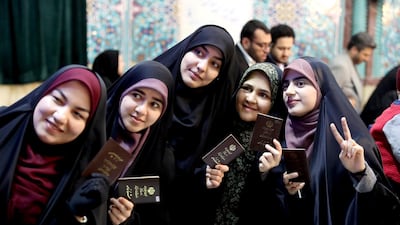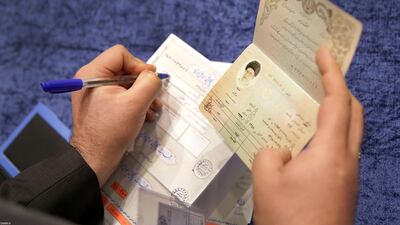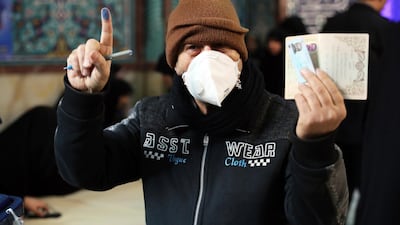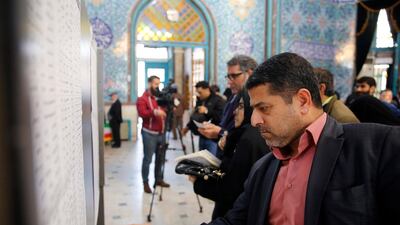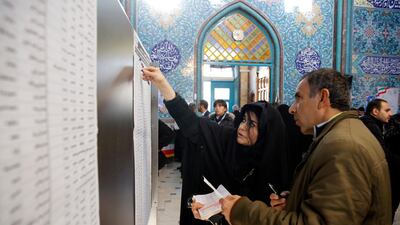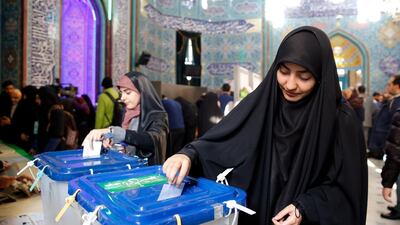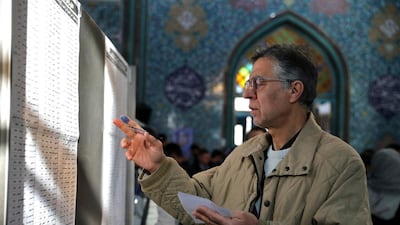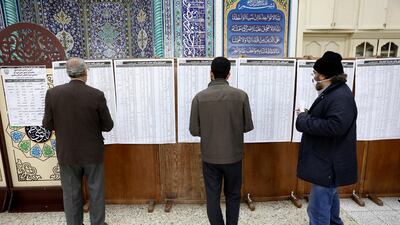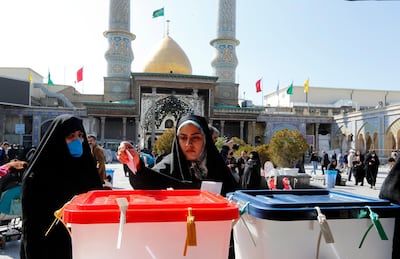Iranians lined up at polling stations across the country on Friday to cast their ballot in parliamentary elections. Much hinges on voter turnout, which will be a key gauge of support for Iran’s leadership in a climate of rising tension as the country buckles under a deepening economic crisis and escalating tensions with the United States.
Hardliners are expected to tighten their grip in an election following the disqualification of thousands candidates in favour of those loyal to Supreme Leader Ayatollah Ali Khamenei. Prior to the vote, his allies in The Guardian Council, a hardline vetting body, weeded out moderates and leading conservatives, leaving a pool of candidates loyal to the supreme leader.
In response, the Trump administration sanctioned five Iranian officials who it accused of preventing free and fair elections on Thursday evening.
“Literally, it is not a race anymore. Hardliners want the presidency. This is the end of moderation for at least a decade if not more,” an official told Reuters on condition of anonymity. While the Iranian Parliament does not wield major power, significant gains by regime supporters could weaken the country’s pragmatist politicians, who back wider engagement with the outside world.
The outcome is likely to weaken the position of Iranian President Hassan Rouhani, who has disappointed supporters by failing to follow through on promises to ease social and political restrictions. The reformist president, who won the last two elections on promises to open Iran up to the outside world, has already lost credibility over the outcome of the nuclear deal, which he orchestrated with the US.
Conservatives, who support the ruling theocracy, will likely dominate, but a win could be undermined by mass abstention if voters boycott the polls. In the days leading up to the vote, Iran's leaders pumped out messages of encouragement at rallies and on social media, urging supporters to cast their ballot.
"Voting is a religious duty ... which will also guarantee the national interests of Iran," Mr Khamenei said after he voted on state television. "I am urging Iranians to vote early."
Some 58 million Iranians out of 83 million are eligible to vote in Iran, where leaders have drawn legitimacy from high voter turnouts in the past. For Mr Khameini, a big turnout would send a strong signal to Washington that that Iran can survive US sanctions.
Tensions between the US and Iran have been rising since President Trump pulled out of the nuclear deal in 2018 and peaked in recent weeks after a US drone strike killed the Iranian Revolutionary Guards' Quds Force commander Qassem Suleimani on January 3.
Critics of the regime said a low turnout would express the public's anger over economic hardship and the violent repression of human rights. Crowds surged onto the streets last November after a steep increase in fuel prices prompted mass protests that quickly morphed into demonstrations calling for regime change. During a week-long internet blackout, a brutal government crackdown killed hundreds and led to thousands of arrests.
Many Iranians are also furious over the accidental shooting down of a Ukrainian passenger plane in January that killed all 176 on board. Protests in the wake of the incident, which Tehran spent several days denying before admitting responsibility, reiterated demands for an end to the regime.
Anti-establishment Iranians have tweeted support for a boycott of the elections on social media with posts showing fingerprints dipped in red ink to represent those killed in the fuel protests under the hashtags #RedInkBoycott and #ElectionBoycott2020.
Previous elections in 2012 and 2016 saw 66-per cent and 62-per cent turnouts respectively with some commentators predicting that disillusionment over the state of the economy and the failure of President Rouhani to follow through on promises to improve civil liberties will lead to a lower turnout in this election.
But with no independent, reliable opinion polls in Iran, it’s difficult to predict which way the ballot will go.

